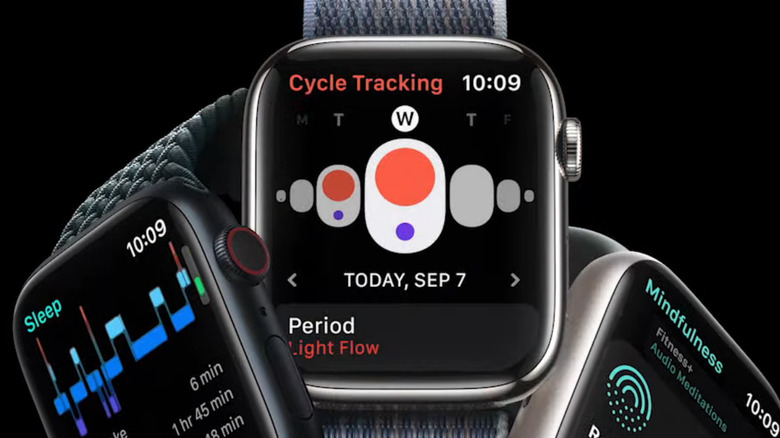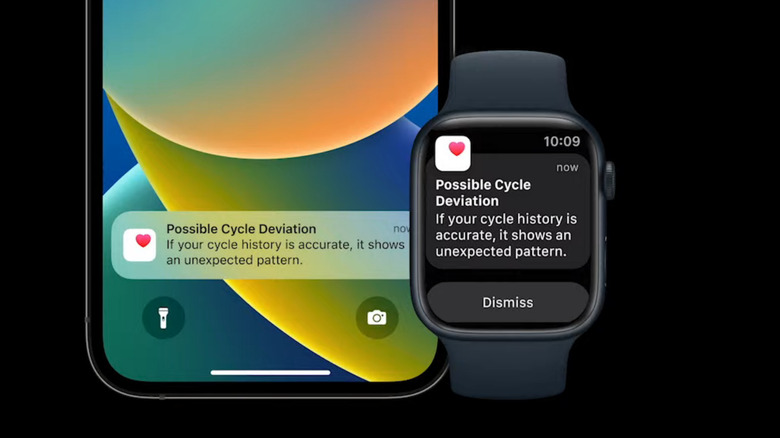Apple Watch Puts Women's Health To The Fore With Ovulation Alerts
Emerging features on the Apple Watch make menstrual and ovulation tracking even easier. Tens of millions of Apple Watch users utilize the three-year-old cycle tracking functions of the device, a speaker at the Apple event stated, and the Series 8's "advanced cycle tracking capabilities" will mature the women's health functions with multiple developments. According to Apple, a new temperature sensor on the Apple Watch Series 8 — which will release later this month — can detect body temperature changes as small as 0.1 degrees Celsius, a landmark capability for ovulation tracking, since basal body temperature only fluctuates by fractions of a degree during peak ovulation times. The sensor re-reads wrist temperatures every five seconds during overnight body temperature monitoring, Apple says, and is reportedly improved in accuracy from previous Watch models to reduce environmental skewing of body temperature.
"In the health app, you'll be able to see nightly shifts from your baseline temperature, which can be caused by things like exercise, jet lag, alcohol, or illness," Apple states, adding that, while tracking of basal temperature plays a critical role in fertility and conception, the tracking of this important data has historically been tracked "manually, with a thermometer and journal." With the temperature data, Apple Watch Series 8 can provide users with a retrospective estimate of when ovulation in the previous cycle occurred and identify potential cycle abnormalities, including early or late ovulation, and securely store that information so the user can monitor trends or share data with their healthcare provider.
Data security a priority in women's health data, Apple says
Apple added that "privacy is at the core" of its women's health suite of functions, and reaffirmed the company's commitment to data security. "We believe privacy is a fundamental human right, and that your health data is yours and yours alone," Apple said at the reveal event. According to the company, data collected by the watch is securely stored and encrypted within the user's personal device, with passcode or biometric entry required to access it.
When cycle tracking and menstrual data is synced to an iCloud account with two-factor authentication, "Apple does not have the key to decrypt the data and therefore cannot read it," the company said. The user holds sole power in sharing health data — including when it's shared and whom with. "Women's health is critically important and we're proud to bring these new advanced cycle tracking capabilities to Apple Watch Series 8."

